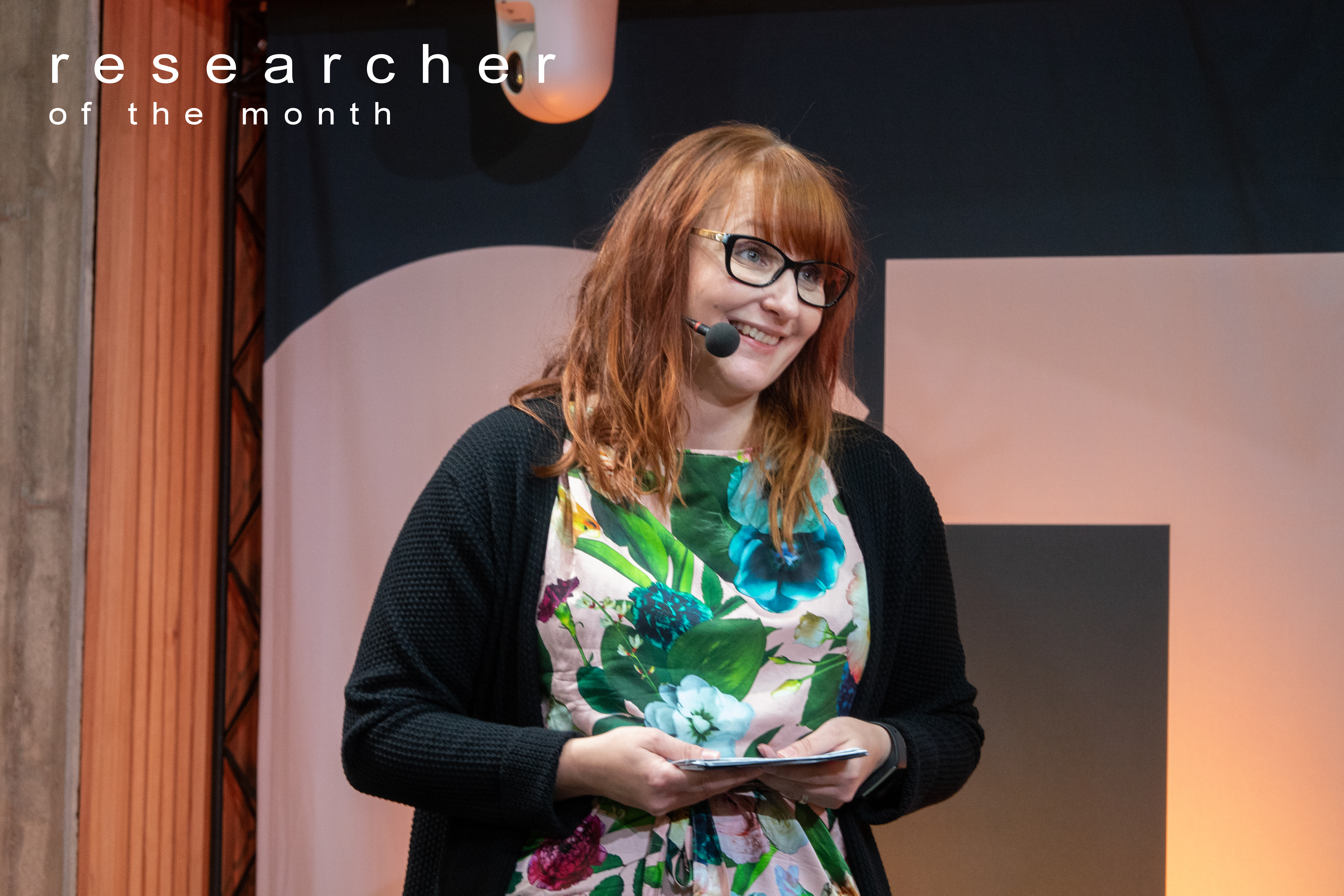The last couple of years Emmi Kauppila has been partaking in international meetings, lecturing about marketing in the social media. In our first profile piece for the series Researcher of the month, she unfolds her fascination for social media as an environment for marketing “vices” such as alcohol, sugary food and gambling.

What is so fascinating about social media marketing?
– In my opinion, a particularly interesting aspect is the possibility to involve consumers in the production and dissemination of marketing content. On social media, interaction between brands and consumers is a two-way street, enabling consumers to engage with marketing content and brands to add user-generated content, consumer engagement and behavioural targeting in their marketing mix. The blurring lines between commercial and consumer activities enhance the credibility of marketing messages and pose great challenges in identifying marketing contents.
Kauppila emphasizes that especially given the embeddedness of social media in young people’s everyday life, this raises ethical questions especially in terms of exposure of children and adolescents to marketing of unhealthy products.

Regulation challenges
In her work, Kauppila has shown why social media activity is so important to monitor from a regulatory perspective:
– The logic of consumer-driven, multifaceted social media marketing has proven to differ from traditional media marketing, undermining regulations established in pre-digital times. Alcohol advertising provides a good example of this. Content-based self-regulatory systems have not met their goal of protecting vulnerable consumer groups, and many countries are currently considering legislative changes along the lines of restricting social media alcohol marketing.
What has made Kauppila’ s work especially valuable for international peers is that Finland has been in the vanguard of development: in 2015 it became the first country in the world to incorporate special regulation of social media into its Alcohol Act. Explains Kauppila:

– We have followed the effects of this legislation with great interest and the results seem to be mixed. Whereas our study provides evidence of declining trend in the use of restricted content, it also shows that the legislation has not kept alcohol brands from creating engaging social media content.
What, then, is the most “outrageous” social media ad that you have come across?
Next year, Kauppila is involved in a project that compares Finnish and Swedish gambling marketing.
– I must say that I am greatly disappointed by poor age-gating. For example, our study showed that minors had access to a majority of Finnish and Swedish alcohol advertisers’ Facebook and Instagram pages. An interesting notion from our on-going study is the observation that child-targeted food advertisements on television often include appeals to online environments, such as suggestions to visit company web pages or encouragements to share brand-related content on social media.
Links to Kauppila’s work:

